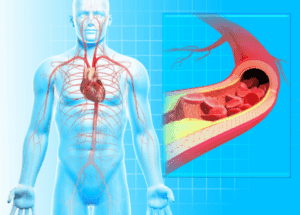A Quick Guide To Diabetes Treatment

Explore effective diabetes treatment options from blood glucose control and blood pressure control to some of the lifestyle changes you can make.
Table of Contents
We’ve developed this quick guide to diabetes treatment to help you get a decent overview of what you need to know as a patient.
Diabetes is a chronic and progressive disease in which your blood glucose level is higher than normal. Normally, the glucose present in the blood is utilized by your body’s cells under the stimulation of insulin. If you have insulin deficiency or insulin resistance, your cells cannot take up the glucose from the blood causing high blood sugar. Insulin deficiency occurs due to the destruction of beta cells of the pancreas. Insulin resistance can occur due to many factors, but it mostly occurs due to metabolic syndrome and obesity.
The long-term complications of diabetes include cardiovascular diseases such as atherosclerosis (blockage of the arteries) and subsequent heart attack, kidney failure, diabetic foot damage, vision damage, and nerve damage.

Blockage of the arteries can lead to heart attack.
Living with a Chronic Disease? – You’re Not Alone.
- Learn how to achieve your best quality of life not defined by your disease.Medmate provides free medical and lifestyle advice for patients.
- Get access to Australian doctors and pharmacists 24/7 to answer your questions.
- Free articles from health experts about evidence based management to prevent disease progression and complications.
- Your questions answered about natural therapies. Are they effective? Are they safe?
- Stop feeling isolated. Join other Australian patients in the Medmate Community below. We’re all in this together.

Diabetes Treatment Goals for optimum management
The control of blood glucose level, blood pressure, cholesterol and lifestyle changes are considered the keys to diabetes management.
Blood glucose control in diabetes treatment
The blood glucose level should be kept at an optimum level to prevent heart and kidney damage in the long run.
Target Blood Glucose Levels (BGLs)
- Before meals: 6 to 8mmol/L
- 2 hours after starting meals: 6 to 10mmol/L
What is HbA1c?
HbA1c is the special type of hemoglobin (found in red blood cells) that is chemically linked with sugar. It gives us an estimation of blood glucose level over the time of the last 3-6 months.
For control of the blood glucose level, insulin and medications should be used according to your doctor’s recommendations. Keeping the target HBA1c at lower than seven increases the risk of hypoglycemic (low blood sugar) events. Your doctor will recommend a HbA1c target based on your life stage and particular circumstances.
Usually The target HbA1c is around 7%.
You should also educate yourself about the long-term complications of diabetes so that you can give your maximum to improve the symptoms. Lifestyle changes have special importance for patients with diabetes. Exercise enhances the insulin sensitivity of the cells and helps control blood glucose levels.

Keeping a record of your blood glucose levels can be very helpful for you and your doctor or Diabetes Educator. You can keep a diary or use a mobile phone app or website to record your levels.
Blood pressure control in diabetes treatment
Diabetes damages the blood vessels. This is accelerated with high blood pressure. If blood pressure is not treated optimally in diabetes, it leads to blockage of the arteries, heart failure, heart attack and kidney damage.
Controlling blood pressure is therefore extremely important in all cases of diabetes.
The target BP for people with diabetes is less than 130/80
Importance of ACE inhibitors in diabetes treatment
ACE inhibitors (a type of blood pressure medication) are the most beneficial group of drugs for hypertension in patients with diabetes. They reduce blood pressure and reduce the risk of all diabetes complications. They have long-term benefits for the cardiovascular system in patients with diabetes above and beyond their blood pressure lowering effect.
Cholesterol management in diabetes treatment
Levels of the blood cholesterol markers are important to monitor in diabetes. Lifestyle modification and medications are used to achieve target levels and reduce the risk of diabetes complications. The use of medications is dependent on your overall cardiovascular risk (you doctor will undertake an assessment). High cholesterol levels cause increased risk of damage and blockage of bloods vessels. The targets in diabetes are:
Total cholesterol <4.0 mmol/L
High density lipoprotein (HDL) >1.0 (HDL is protective).
Low density lipoprotein (LDL) <2.0 mmol/L
Triglycerides <2.0 mmol/L

Increasing your lean muscle mass will improve blood sugar and cholesterol levels.
Lifestyle Changes for diabetes treatment
Lifestyle changes have central importance in the management of diabetes.
Diet management is vital in diabetes under the guidance of a dietician. In general, patients are recommended to eats lots of vegetables, moderate protein and fat and low carbohydrate. Eat regular meals spread evenly through the day. Limit foods high in energy such as fruits, cakes and biscuits, sugar sweetened drinks, fruit juice, chocolate, and lollies. Alcohol should be limited to less than 2 standard drinks per day.
Regular exercise reduces insulin resistance and improves blood glucose control, blood pressure and cholesterol levels. Patients should aim for a minimum of 30 minutes moderate intensity exercise per day (you should feel puffed out with a good workout). Exercise also reduces weight. Reduced body fat reduces the formation of atherosclerosis plaques and subsequent cardiovascular damage.
Target body weight. We target a Body Mass Index (BMI) of less than 25.
Smoking cessation is vital. The combination of smoking and diabetes is lethal and will lead to limb amputation and heart attack. Patients must stop smoking.
The Takeaway Message
It’s important to develop a comprehensive management plan with your General Practitioner. Patients managing diabetes are monitored regularly for key markers. A team of medical professionals is involved including an endocrinologist, ophthalmologist, dietician, diabetes educator, exercise physiologist and pharmacist. Keeping control of risk factors means you can significantly reduce the likelihood of diabetes complications. You are in control and can lead a normal healthy life with the guidance of your medical team.
References
1: Schuster, D. P., & Duvuuri, V. (2002). Diabetes mellitus. Clinics in podiatric medicine and surgery, 19(1), 79–107. https://doi.org/10.1016/S0891-8422(03)00082-X
2: Valeri, C., Pozzilli, P., & Leslie, D. (2004). Glucose control in diabetes. Diabetes/metabolism research and reviews, 20 Suppl 2, S1–S8. https://doi.org/10.1002/dmrr.512
3: Charpentier, G., Riveline, J. P., & Varroud-Vial, M. (2000). Management of drugs affecting blood glucose in diabetic patients with renal failure. Diabetes & metabolism, 26 Suppl 4, 73–85. https://pubmed.ncbi.nlm.nih.gov/10922977/
4: Bakris G. L. (2004). The importance of blood pressure control in the patient with diabetes. The American journal of medicine, 116 Suppl 5A, the 30S–38S. https://doi.org/10.1016/j.amjmed.2003.10.018
5: Snow, V., Aronson, M. D., Hornbake, E. R., Mottur-Pilson, C., Weiss, K. B., & Clinical Efficacy Assessment Subcommittee of the American College of Physicians (2004). Lipid control in the management of type 2 diabetes mellitus: a clinical practice guideline from the American College of Physicians. Annals of internal medicine, 140(8), 644–649. https://doi.org/10.7326/0003-4819-140-8-200404200-00012
6: Levesque C. (2017). Therapeutic Lifestyle Changes for Diabetes Mellitus. The Nursing clinics of North America, 52(4), 679–692. https://doi.org/10.1016/j.cnur.2017.07.012
Join the Medmate Community!
Receive free expert health advice from Australian doctors and health advisors. Join the Medmate community now - just what the doctor ordered.
Health Information I Medication Education & Tips I Patient Stories & Videos.



